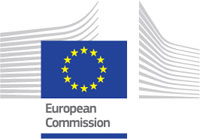
The European Commission published today the results of an external market study on the distribution practices of hotels in the EU.
The market study was conducted in 2021 and covers the period between 2017 and 2021. It focused on a representative sample of six Member States (Austria, Belgium, Cyprus, Poland, Spain and Sweden). The study aimed to:
- obtain up-to-date facts on hotels’ distribution practices, following up on a similar monitoring exercise carried out by the European Competition Network (ECN) in 2016;
- establish whether hotels’ distribution practices differ between Member States;
- identify any changes in hotels’ distribution practices, as compared to the results of the ECN monitoring exercise of 2016;
- find out whether laws banning the use of wide and narrow parity clauses by online travel agents in Austria and Belgium have led to changes in hotels’ distribution practices in those Member States. Parity clauses prevent hotels from offering better conditions on sales channels other than the website of the online travel agent with which the hotel has a contract. Wide parity clauses relate to the price and other conditions offered by the hotel on all other sales channels, whereas narrow parity clauses relate only to the prices published by the hotel on its own website.
The main results of the market study
The results of the market study do not indicate any significant change in the competitive situation in the hotel accommodation distribution sector in the EU compared to 2016. In particular:
- Online travel agencies (‘OTAs’) account for 44% of independent hotels’ room sales, a slight increase relative to 2016.
- Booking.com and Expedia remain the leading OTAs for hotel bookings and there is no sign of significant changes in OTA market shares or of new OTA entry.
- The commission rates paid by hotels to OTAs appear to have remained stable or slightly decreased.
- The level of room price and room availability differentiation applied by hotels both between different OTAs and between the hotels’ own websites and OTAs appears to have decreased.
- It appears that some OTAs use commercial measures, such as improved/reduced visibility on the OTA website, to incentivise hotels to give them the best room prices and conditions.
- The relative importance of hotel sales channels (online/offline, direct/indirect) differs to some extent between Member States, but there appear to be no significant differences in the conditions of OTA competition.
- Laws in Austria and Belgium banning the use of wide and narrow OTA parity clauses in the hotel sector do not appear to have led to material changes in hotel distribution practices, relative to the other Member States covered by the study.
The Commission consulted the EU National Competition Authorities (‘NCAs’) on the design of the market study and has discussed the results of the study with them.
Next steps
The results of the study will be taken into account by the Commission and NCAs in their ongoing monitoring and enforcement work in the hotel accommodation distribution sector.
The Digital Markets Act (‘DMA’), which is expected to enter into force in the autumn may also have an impact on competition in the hotel accommodation distribution sector. The DMA aims to ensure that platform markets are contestable and that gatekeeper platforms offer fair terms to business users. The DMA prohibits gatekeeper platforms from using wide or narrow retail parity clauses or equivalent commercial measures. The process for designating gatekeeper platforms will begin once the DMA becomes applicable, six months after entry into force.
Background
The distribution of hotel accommodation has been the subject of several antitrust and legislative interventions in recent years.
Since 2010, several NCAs have investigated the use of retail parity clauses by OTAs in their contracts with hotels. Wide retail parity clauses prevent the hotel from offering better room prices or increased availability on any other sales channel. Narrow retail parity clauses allow the hotel to offer better room prices on other OTAs and for offline sales, but prevent the hotel from publishing better prices on its website. As a result of these national investigations, in April 2015, the French, Italian and Swedish NCAs accepted binding commitments from Booking.com to change its wide retail parity clauses to narrow parity clauses throughout the European Economic Area (‘EEA’) for a period of five years. In August 2015, Expedia also decided to change its retail parity clauses from wide to narrow throughout the EEA. In December 2015, the German NCA prohibited Booking.com’s narrow parity clauses. Following an appeal by Booking.com, this decision was ultimately upheld by the German Supreme court.
Between 2015 and 2018, France, Austria, Italy and Belgium adopted laws banning the use of wide and narrow retail parity clauses by OTAs in the hotel sector.
In 2016, a group of ten NCAs and the Commission conducted a monitoring exercise in the hotel booking sector, to measure the effects of the changes to OTA parity clauses resulting from these regulatory interventions.
In February 2017, based on the results of the monitoring exercise, the ECN decided that the competition remedies already adopted should be given more time to produce effects and that the competitive situation would be re-assessed in due course.
In 2020, Booking.com and Expedia informed the Commission and NCAs that they would continue to refrain from using wide retail parity clauses throughout the EEA until at least June 2023.
In May 2022, the Commission adopted the new Block Exemption Regulation for Vertical Agreements (‘new VBER’), which provides a safe harbour for certain vertical agreements, and the accompanying Vertical Guidelines. Wide retail parity clauses used by online platforms are excluded from the new VBER’s safe harbour. However, other types of parity clause, including narrow retail parity clauses, continue to benefit from the safe harbour. The Vertical Guidelines provide guidance for companies on the application of the new VBER to parity clauses and on the assessment of parity clauses in individual cases falling outside the safe harbour.







